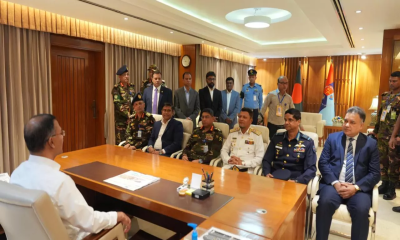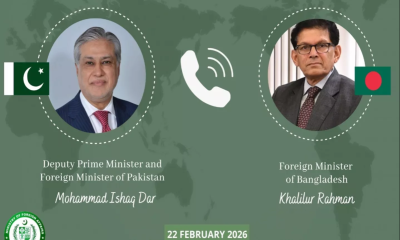Negotiations to secure an immediate ceasefire in the war in Gaza tied to the release of hostages held by Hamas are “getting closer” to a deal, US Secretary of State Antony Blinken said Wednesday, reports CNN.
“I think the gaps are narrowing, and I think an agreement is very much possible,” Blinken said in an interview with Al-Hadath in Jeddah, Saudi Arabia, according to a transcript released by the State Department.
“We worked very hard with Qatar, with Egypt, and with Israel to put a strong proposal on the table. We did that; Hamas wouldn’t accept it. They came back with other requests, other demands. The negotiators are working on that right now,” Blinken explained.
Blinken did not give details about what gaps were narrowing or what undergirded his confidence that an agreement is possible. President Joe Biden last month expressed confidence that a ceasefire was near, but his administration later walked back that prediction after officials from Israel, Hamas and Qatar distanced themselves from Biden’s optimism.
Blinken again reiterated that the onus is on Hamas to accept the proposal that is on the table, with a senior Biden administration official telling reporters earlier this month that a six-week ceasefire was “basically accepted” by Israel.
“A very strong proposal was put on the table, and we have to see if Hamas can say yes to the proposal. If it does – if it does – that’s the most immediate way to alleviate the misery of people in Gaza, which is very much what we want,” Blinken said.
Blinken again said that not enough assistance is reaching the people of Gaza and called on Israel “to open up more access points to Gaza.” He said a floating maritime pier, which Biden announced earlier this month would be built to send large shipments of aid into the territory, is in the process of being built, “and I think in a matter of weeks, hopefully, that will be done.”
“It’s not a substitute for making sure that we’re getting as much assistance through over land as possible,” he noted.
Also Wednesday, Blinken met with Saudi Arabia’s Crown Prince Mohammed bin Salman and discussed the urgent need for a cessation of hostilities in Gaza, according to Saudi state-run SPA news. The two discussed the latest developments and “efforts to stop military operations,” as well as the security and humanitarian situation in the region, SPA said.
Blinken, who will travel on to Egypt to meet with Arab leaders Thursday, said in his Al-Hadath interview that it is important to be ready “for what happens with the governance of Gaza” after the war ends.
“I think it’s very important that the cabinet of the new government that emerges have new faces, younger people – people who are genuinely representative of Gazans, the West Bank, and who are prepared to do the necessary things to really revitalize the Palestinian Authority so that it’s better able to deliver for the Palestinian people – more transparency in government, combatting corruption, and then winning the confidence of people,” he said.
“Now, it’s also going to be imperative that Israel work with, cooperate with, a new Palestinian Authority because it’s going to be very difficult for it to actually deliver results without that,” he added.
Blinken would not give details about “alternatives” to an Israeli incursion in Rafah that US officials plan to discuss with Israeli officials. The US has been asking Israel how it intends to protect the estimated 1.5 million Palestinians seeking refuge in the southern Gaza city ahead of a planned military operation there.
“We have to have a chance to talk to the Israelis about this, but as I said, what we don’t want to see is a major ground operation because we don’t see how that can be done without doing terrible harm to civilians,” he said.
“But at the same time, it is imperative to do something about Hamas, because Hamas has brought nothing but death and destruction to Palestinians. And if you go back, Israel withdrew from Gaza unilaterally in 2006; Hamas engaged in major attacks on Israel in 2008, 2009, 2011, 2014, 2021, and of course October of 2023. That’s not a sustainable situation. And it’s also the greatest impediment to trying to find a lasting peace, lasting security, including a Palestinian state, which is the only way in our judgment to have something that’s genuinely enduring and that can bring lasting security for Palestinians, for Israelis, and for the region,” he said.




-20260223082704.webp)

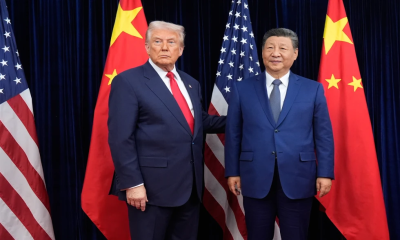

-20260220065859.jpeg)
-20260219110716.webp)
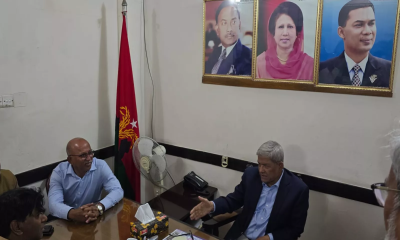
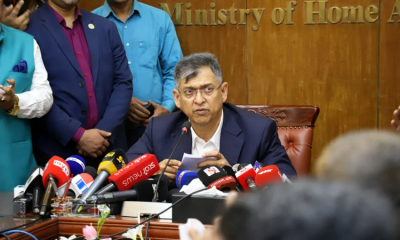
-20260223074941.jpeg)
-20260223062301.jpg)
